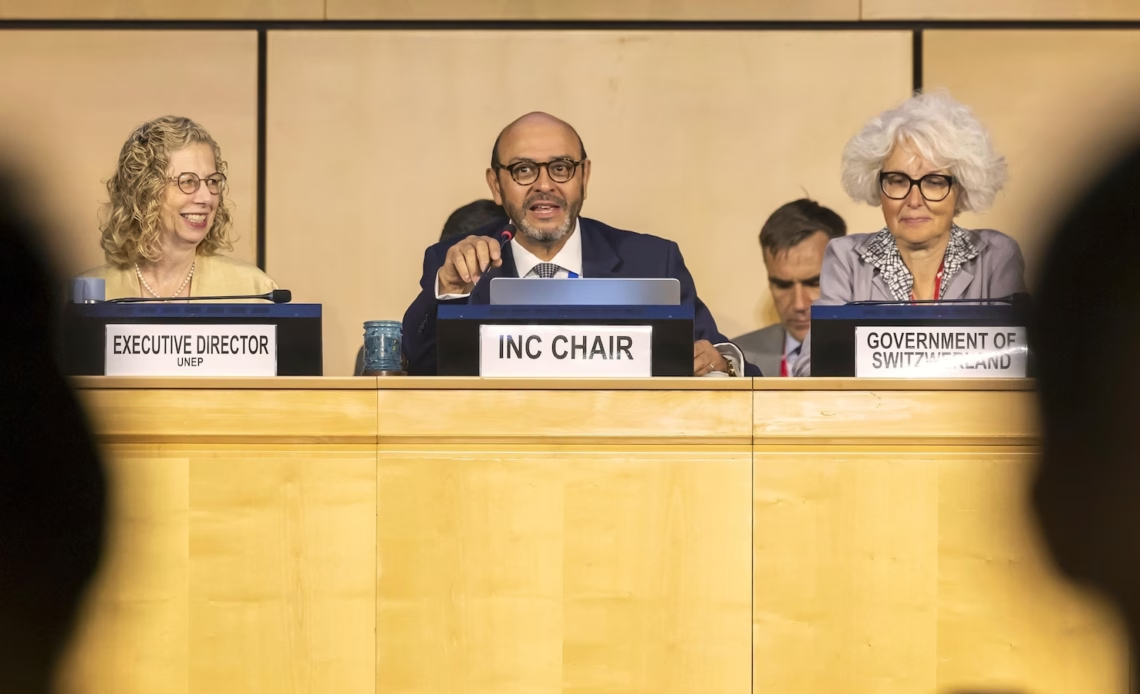Nations kicked off a meeting on Tuesday to try to complete a landmark treaty aimed at ending the plastic pollution crisis that affects every ecosystem and person on the planet.
It’s the sixth time negotiators are meeting and they hope the last. A key split is whether the treaty should require cutting plastic production, with powerful oil-producing nations opposed; most plastic is made from fossil fuels. They say redesign, recycling and reuse can solve the problem, while other countries and some major companies say that’s not enough.
Luis Vayas Valdivieso, the chair of the negotiating committee that aims to develop a legally binding instrument on plastic pollution, said: “We are pretty sure nobody wants plastic pollution. Still, we have not been able to find a systematic and an effective way to stop it.”
Valdivieso believes the 10-day gathering in Geneva can be groundbreaking.
“For the first time in history, the world is within our reach of a legally binding international instrument to end plastic pollution,” said Valdivieso, who is also Ecuador’s ambassador to Britain. “We are facing a global crisis. Plastic pollution is damaging ecosystems, polluting our oceans and rivers, threatening biodiversity, harming human health and unfairly impacting the most vulnerable. The urgency is real.”
Only a treaty can mobilize the necessary global action, said Angelique Pouponneau, lead ocean negotiator for 39 small island and low-lying coastal developing states. At home in the Seychelles, Pouponneau said, plastic contaminates the fish they eat, piles up on beaches and chokes the ocean to undermine tourism and their way of life.
“It’s the world’s final opportunity to get this done and to get it done right,” she said. “It would be a tragedy if we didn’t live up to our mandate.”
United Nations Environment Programme Executive Director Inger Andersen said the issues are complex, but the crisis is “really spiraling” and there’s a narrow pathway to a treaty. She said many countries agree on redesigning plastic products to be recycled and improving waste management, for example.
“We need to get a solution to this problem. Everybody wants it. I’ve yet to meet somebody who is in favor of plastic pollution,” Andersen said.
Between 19 million and 23 million tons of plastic waste leak into aquatic ecosystems annually, which could jump 50% by 2040 without urgent action, according to the UN.
In March 2022, 175 nations agreed to make the first legally…
Click Here to Read the Full Original Article at ABC News: Business…

